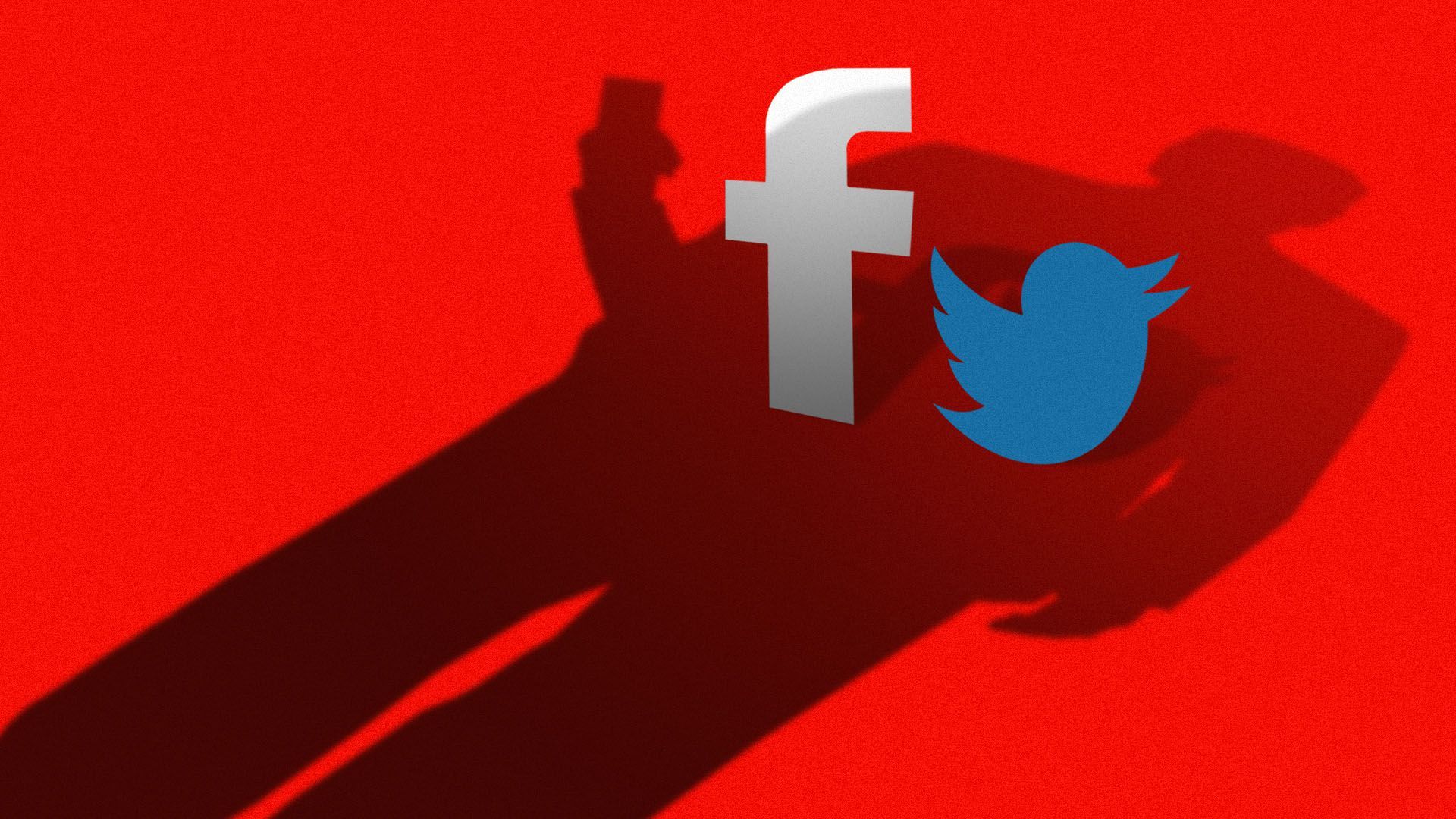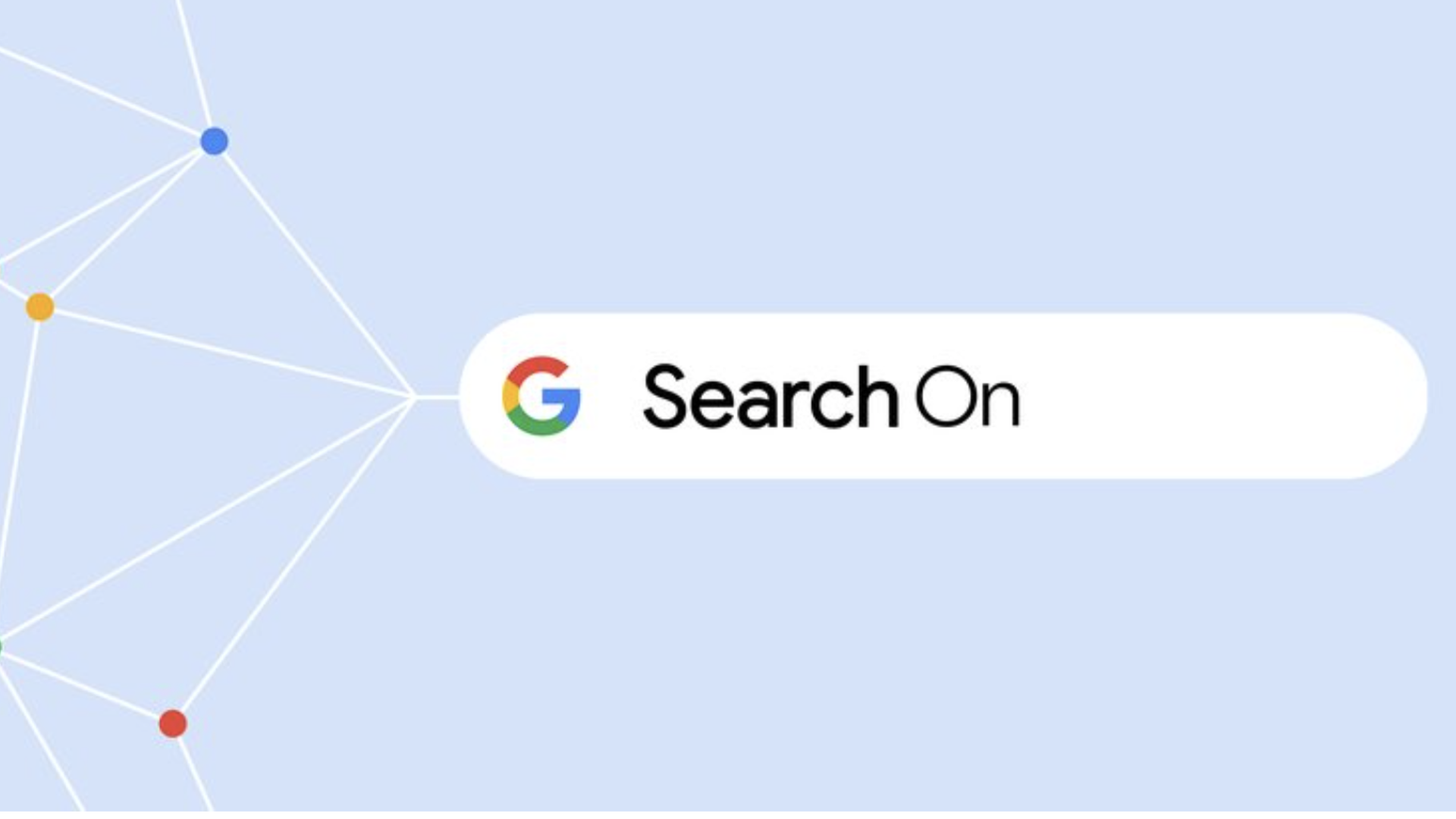| | | | | | | Presented By OWL Labs | | | | Login | | By Ina Fried ·Oct 16, 2020 | | Sorry, I was just catching up on a few tweets ... I'm still behind after yesterday's outage. Speaking of Twitter, Axios' Dan Primack talked with Sen. Ted Cruz for Axios Re:Cap about the controversy over Twitter and Facebook blocking the sharing of a New York Post story about Hunter Biden. We've got plenty more on that in today's Login, but you can also listen to Dan's conversation with Cruz via Apple, Spotify, or Axios. Today's Login is 1,511 words, a 6-minute read. | | | | | | 1 big thing: Facebook and Twitter, the reluctant gatekeepers |  | | | Illustration: Annelise Capossela/Axios | | | | Deciding who gets to say what online is a complex business in the best of times, and the 2020 election is showing social media platforms just how messy it can get, Axios' Scott Rosenberg reports. The big picture: Balancing concerns over misinformation, hacking and foreign meddling against free-speech principles is already hard enough. Tackling it in real time in the middle of a political knife fight is almost certainly going to go awry. What's happening: Fast action Wednesday by Facebook and Twitter to limit the reach of a questionably sourced New York Post story about Hunter Biden showed the world what aggressive misinformation policing on social media platforms looks like — and much of the world didn't like what it saw. - On the right, pundits cried "censorship" while lawmakers demanded new in-person testimony from CEOs to defend their choices.
- On the left, observers worried about the "Streisand effect" — the idea that trying to suppress or remove online information only draws attention to it.
- In newsrooms, the prospect of tech companies dialing back the distribution for newspaper stories gave journalists the creeps — even those with deep doubts about the quality of the New York Post article.
Driving the news: The two companies took different measures and relied on different rationales. - Facebook decided to send the article to its third-party fact-checking partners for review. (The fact check is still in process.) While awaiting a report, the social network said it would limit the story's reach to reduce the likelihood of spreading misinformation.
- Twitter said some aspects of the story, including photos and personal information, violated its policy against sharing "hacked materials" and blocked users from linking to the article. Late Thursday night, the company announced it was revising that policy in response to the uproar. The changes should help Twitter avoid a repeat incident, but that's unlikely to dim the clamor over what's already happened.
Between the lines: In both cases, the companies were reacting to criticism of their performance during the 2016 election — and responding to what looked to them like a "hack and leak" operation similar to the pilfering of Democratic National Committee emails that year. - While conservative activists and politicians and some journalists protested their actions, many security and disinformation experts praised their fast response. But the companies' messaging on their moves made a messy situation worse.
- Some of Facebook's fact-checking partners said they were surprised by the company's decision to reduce the Post story's reach even before a review.
- At Twitter, CEO Jack Dorsey tweeted: "Our communication around our actions on the @nypost article was not great. And blocking URL sharing via tweet or DM with zero context as to why we're blocking: unacceptable."
Our thought bubble: Facebook's "slow the spread" response looks more prudent than Twitter's "block the link" tactic, which infuriated users. But both moves looked haphazard. Three weeks before an election they have spent three years preparing for, the platforms still don't seem ready to take responsibility for their power. These companies didn't set out to be the gatekeepers of political news. They'd rather write code, make money, and feel good about "connecting the world." - But their success made them ubiquitous, and they came to dominate the distribution of news and information. Now they can't duck making tough calls.
|     | | | | | | 2. Republican rage targets Facebook and Twitter |  | | | Illustration: Sarah Grillo/Axios | | | | Republicans and conservatives in particular are sharpening their attacks on Facebook and Twitter in the wake of the New York Post controversy, Axios' Kyle Daly and Ashley Gold report. Where it stands: The attacks are passionate, but the likelihood of government action against the platforms remains low. Even the most realistic and increasingly popular proposal — to punish online platforms by removing their prized liability shield — would be a steep uphill battle. Driving the news: Republicans are rallying around shrinking or eliminating Section 230 of the Communications Decency Act, which immunizes tech platforms against lawsuits over both moderation decisions and the material their users post. - "We're going to take away their Section 230 unless they shape up," President Trump said after bringing up the news at a North Carolina rally Thursday.
- House Minority Leader Kevin McCarthy (R-Calif.) told reporters Thursday that, in light of the news, "it's time to scrap" Section 230.
At the Federal Communications Commission, chairman Ajit Pai said in a Thursday statement that he plans to go through with crafting rules to limit the scope of Section 230 protections, as Trump requested in an executive order. - Pai said the agency's general counsel concluded that the FCC has the legal authority to do so, an idea that critics on both the right and left have questioned.
- Any FCC action will depend on a Trump victory in November. Pushing the commission in this direction is a nonstarter for Democrats.
Republicans could also turn to the courts to scotch Section 230. The Supreme Court, Justice Clarence Thomas wrote earlier this week, should look for a case that would let it narrow the law's scope. - But for now, at least, getting the John Roberts court to hear such a case and deliver a precedent-breaking ruling may amount to Republican wishful thinking.
The most effective path to rein in Section 230 goes through Congress, which could pass new legislation. - There's bipartisan interest in that idea, but the parties' motives are at odds. Republicans focus on claims of anti-conservative bias, while Democrats want to hold tech platforms more accountable for the spread of misinformation.
- The New York Post case has Republicans furious, while Democrats are likely to see it as a success in the fight against misinformation.
- It's harder than ever to see them working together on this issue.
Kyle and Ashley have more here. |     | | | | | | 3. Financial lifeline for a key 5G spectrum holder | | A company that might be at the center of 5G's future is being thrown a lifeline, Axios' Aja Whitaker-Moore reports. Driving the news: Ligado Networks is raising $3.85 billion in expensive new financing to stay out of bankruptcy. The spectrum company's survival could be crucial to the long sought-after, and sometimes controversial, dream of deploying a nationwide 5G network. Wireless companies like T-Mobile, Verizon and AT&T are racing to acquire spectrum to build next-generation 5G wireless networks. The type of spectrum Ligado holds, commonly known as L-Band, is a source of additional capacity and may help traditional carriers boost their ability to create even better networks. - One estimate from New Street Research says Ligado's L-Band spectrum portfolio could be worth anywhere from $12–$23 billion, depending on how the carriers want to use it.
The state of play: The FCC and Trump administration officials like Attorney General William Barr, a former telecom exec, and Secretary of State Mike Pompeo firmly back Ligado's effort. But other U.S. agencies, including the Federal Aviation Administration and the Defense Department, as well as members of Congress, have lobbied hard against the company. My thought bubble: I remember the company, then known as LightSquared, trying to fill a similar role in the 4G world. It was pledging to build a wholesale LTE network for others to use, but struggled amid similar concerns over GPS interference, and eventually entered bankruptcy— before re-emerging as Ligado. |     | | | | | | A message from OWL Labs | | 70% of Americans are working remotely during COVID-19 | | |  | | | Remote work is the preferred way to work. OWL Labs' new report found that after COVID-19:- 1 in 2 people won't return to jobs that don't offer WFH.
- 80% of respondents expect to WFH at least 3x per week.
- 77% agree that being able to WFH would make them happier.
Read the report. | | | | | | 4. Google taps AI for new search tricks |  | | | Courtesy: Google | | | | Google on Thursday outlined a number of new features for its core search product, including the ability to search for that song stuck in your head by humming or whistling. Why it matters: While humming may be a cute use case, it shows Google's recognition that there are plenty of ways to search beyond typing terms into a box. The company has been investing heavily in voice search as well as AI capabilities to help people use their smartphone camera to look up plants or get help with translation. What's new: Beyond the hum-to-search feature, Google announced several other features Thursday during a livestream event dubbed "Search On." - Google is rolling out a new algorithm to better detect when someone uses the wrong word in a search or simply has their fingers misaligned on the keyboard. It really works, as I found out in a back-and-forth on Twitter with Google search liaison Danny Sullivan.
- To help during the COVID-19 crisis, Google is making it easier to know whether a particular location is crowded at any moment and what precautions, such as mask requirements, are being taken there.
- Google detailed its progress with Duplex, its automated assistant that can call merchants to make appointments. The company said it's also using the technology to make more than 3 million updates to business listings, such as pharmacies, restaurants and grocery stores, in search and Maps.
|     | | | | | | 5. Take Note | | On Tap - Pre-orders start today for the iPhone 12 and 12 Pro. (The iPhone 12 Mini and iPhone 12 Pro Max don't go on sale until next month.) The major carriers all have various offers for new and existing customers.
- Elon Musk plans to share more details about his space plans at a virtual meeting of the Mars Society today.
Trading Places - TechNet today named David Edmonson as VP of state policy and government relations. Edmonson had been an acting VP overseeing efforts in Texas and the Southeast and previously led the Austin Tech Alliance.
ICYMI |     | | | | | | 6. After you Login | | Simone Giertz (aka the Queen of S----y Robots) built a selfie booth for her dog and it is just as awesome as it sounds. (A behind-the-scenes video of its construction is here.) |     | | | | | | A message from OWL Labs | | 70% of Americans are working remotely during COVID-19 | | |  | | | Remote work is the preferred way to work. OWL Labs' new report found that after COVID-19:- 1 in 2 people won't return to jobs that don't offer WFH.
- 80% of respondents expect to WFH at least 3x per week.
- 77% agree that being able to WFH would make them happier.
Read the report. | | | | | | Axios thanks our partners for supporting our newsletters.
Sponsorship has no influence on editorial content. Axios, 3100 Clarendon Blvd, Suite 1300, Arlington VA 22201 | | | You received this email because you signed up for newsletters from Axios.
Change your preferences or unsubscribe here. | | | Was this email forwarded to you?
Sign up now to get Axios in your inbox. | | | | Follow Axios on social media:    | | | | | |







No comments:
Post a Comment